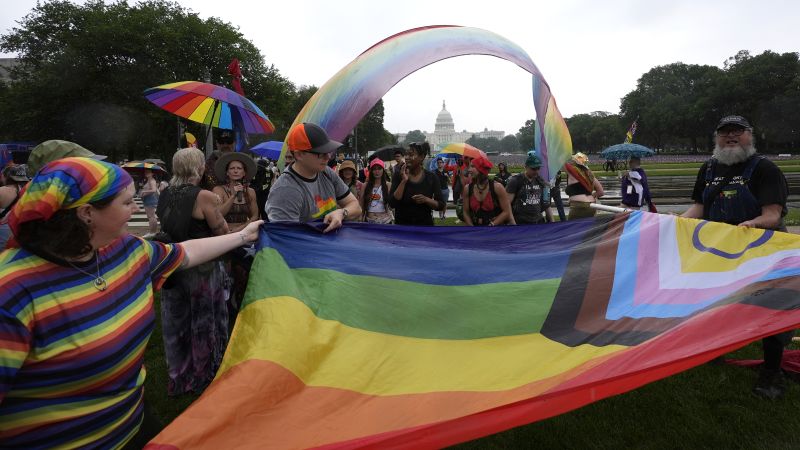World Pride 2025, hosted in Washington, D.C., represented a significant celebration of the LGBTQ community, taking place against a backdrop of intense political discourse. This international festival aimed at recognizing and supporting LGBTQ rights drew attention primarily to U.S. politics, with the nation’s capital celebrating its 50th anniversary of Pride festivities. The weekend was replete with events including a vibrant parade, free concerts featuring renowned artists such as Cynthia Erivo and Doechii, and a significant march on Sunday. Organizers presented this event as a moment of unity, pledging to “celebrate, educate, support, and inspire” the global LGBTQ community.
The World Pride 2025 festivities were underscored by the urgent need for advocacy and awareness in a time where voices are being consolidated to champion the fight for equality, visibility, and justice within the LGBTQ+ community. The event’s official website emphasized the significance of the occasion, framing it as a “historic moment” in the context of LGBTQ rights. This sentiment encapsulated the essence of the celebrations, merging joyful revelry with a dire call to action for the ongoing battle against marginalization.
During the Sunday march, which traversed the National Mall and concluded near the steps of the U.S. Capitol, many attendees voiced their concerns regarding the recent political climate shaped by the Trump administration. Under this administration, LGBTQ-related issues have faced significant challenges, including pressure on corporations to dismantle diversity and inclusion initiatives, a move to exclude transgender individuals from military service, and restrictive measures impacting access to gender-affirming healthcare for youth. These actions have alarmed activists and allies alike, conveying a pressing need for defense of LGBTQ rights.
One attendee, Liz Bauer, a first-grade teacher based in D.C., expressed her deep concern about the negative implications these policies impart on transgender children, particularly those she interacts with in her classroom. Bauer articulated the importance of nurturing inclusive environments that afford young individuals their rightful space and voice, emphasizing resilience against attempts to diminish their presence in society. “It’s crucial that we continue to push back, even in small ways…protecting every time that someone tries to change their ability to exist because they’re still going to exist,” she stated passionately, underscoring the collective responsibility to advocate for the perennially marginalized.
Bauer eloquently hoped that the celebration of World Pride would convey a reassuring message to those feeling diminished by current political decisions, asserting solidarity and permanence in the face of adversity: “We’re not going anywhere. We’re standing strong,” she claimed, vowing to advocate for individuals who may feel voiceless due to systemic oppression.
The absence of a proclamation from the White House recognizing Pride Month this year contrasted starkly with the tradition established by former President Bill Clinton in 1999. This shift in acknowledgement has raised concerns among LGBTQ advocates and allies regarding the broader implications of such a dismissal. Jay Abbit from Hollywood, Florida, remarked on how this lack of acknowledgment embodies a form of microaggression, serving as a “dog whistle” to the administration’s supporters, highlighting the necessity to engage in discussions addressing these subtleties of discrimination.
Amidst the ongoing celebrations, former Vice President Kamala Harris participated in a video message at the rally, emphasizing both celebration and the need for continued commitment to advocacy efforts in the face of prevailing challenges. She underscored a united front, stating, “Let us be clear, no one should be made to fight alone; we are all in this together.” Her words reinvigorated the spirit of camaraderie among attendees, reaffirming that the fight for equity and inclusion transcends individual experiences, calling for collective resilience.
In summary, World Pride 2025 stood as a potent testimony to the enduring spirit and advocacy of the LGBTQ community, merging moments of joy with the advocacy necessary to combat the oppression faced within current political landscapes. It highlighted both celebration and urgent calls for action towards a fully inclusive future.



